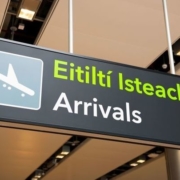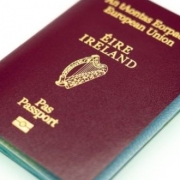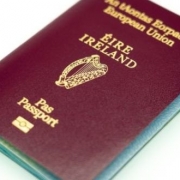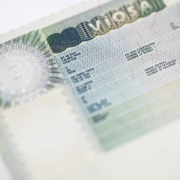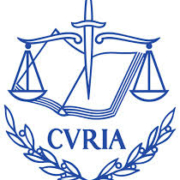On the 15th of September 2022, the Court of Justice of the European Union delivered a seminal judgement in the area of EU free movement law, finding in favour of the applicants in the case of C-22/21 (Subhan and Ali v the Minister for Justice and Equality.)
The judgment can be found here.
The applicants, who are long standing clients of Berkeley Solicitors, first issued proceedings in 2016 to challenge the Minister’s refusal of an EU residence card to the non-EEA national cousin of a British citizen in 2015. The Minster had refused the residence card application on the basis that evidence had not been provided that the EU citizen was the “head of the household”. The Subhan and Ali case became the test case for many other applicants also challenging the Minister’s decisions relating to the interpretation of term “members of the household of the union citizen” in the context of Directive 2004/38/EC.
On the 14th January 2021, the Irish Supreme Court made a preliminary reference to the CJEU to seeking a definition of the term “member of the household of an EU citizen”.
The Court of Justice’s judgment delivered today confirmed that the inclusion of the concept of “head of the household”, adopted by Ireland in its narrow assessment of the definition “members of the household”, amounts to an additional criterion not provided for in the wording of Article 3(2)(a) of Directive 2004/38/EC and is not permissible. The Minister’s finding in the Applicants’ case was therefore unlawful and imposed an additional test not envisaged by the Directive and would amount to imposing, in practice, an additional criterion not provided for in the wording of that provision. The decision therefore clearly holds the “head of the household test” applied by the Minister against the applicants was not in accordance with the EU Directive.
This ruling goes much further than declaring the legality of the Applicants decision under challenge, as the Court of Justice has also provided a novel definition of the term “membership of the household” applicable to all member states.
The Court of Justice held that Article 3(2)(a) of Directive 2004/38/EC must be interpreted as meaning that:
“the concept of ‘any other family members who are members of the household of the Union citizen having the primary right of residence’, mentioned in that provision, refers to persons who have a relationship of dependence with that citizen, based on close and stable personal ties, forged within the same household, in the context of a shared domestic life going beyond a mere temporary cohabitation entered into for reasons of pure convenience.”
The judgment has therefore provided the much needed clarification on the parameters of which family members of an EU citizen are or are not the “members of a household of an EU citizen”.
The Court’s definition, in requiring a “relationship of dependence” is a narrower interpretation than the ordinary meaning of the words “member of the household”. The Court has also clarified that a person is not a “member of the household” for the purposes of the Directive by simple virtue of residing under the one roof.
The Court has determined that this interpretation is supported by the “context of the provision”, which is included alongside dependent family members and members of the family requiring the strict personal care of the EU citizen for medical reasons:
The first situation, in which those other family members are dependents of the Union citizen, concerns a situation of financial dependence. The second situation, in which serious health grounds strictly require the personal care of the ‘other family member’ by the Union citizen, expressly refers to a situation of physical dependence. In that context, the situation at issue in the main proceedings – in which the other family member is a member of the household of the Union citizen – must be understood as also covering a situation of dependence, based this time on the existence of close and stable personal ties between those two persons.
An applicant must therefore be able to evidence a situation of dependence arising from close and stable personal ties between themselves and the EU citizen with whom they share a “domestic life”.
The Court goes on to clarify: However, it cannot be required that those ties be such that the Union citizen would refrain from exercising his freedom of movement if that other member of his family could not accompany or join him in the host Member State.
The Court also appears to answer another important question that was not specifically referred to it in confirming that time spent as members of the same household before acquisition of EU citizenship by one of the family members is also relevant in considering whether the applicant is a member of the household of the EU citizen. This is a very interesting aspect to the judgment as it clarifies that family circumstances prior to one of the parties becoming an EU citizen can be taken into account in determining whether an applicant is a beneficiary of the Directive. At paragraph 29 the Court concludes :
The duration of the domestic life shared by the Union citizen and the other family member concerned is also an important factor to be taken into consideration in assessing whether there are stable personal ties between them. It must be possible to determine that duration irrespective of the date on which Union citizenship was acquired. It follows from point (a) of the first subparagraph of Article 3(2) of Directive 2004/38, interpreted in the light of recital 6 thereof, that, in order to assess the stability of the personal ties linking those two individuals, it is necessary to take into account not only the period subsequent to the acquisition of Union citizenship, but also the period prior to this.
This is a very important and long-awaited judgment, and it has set a significant precedent for EU free movement law.
The definition provided by the Court is clear and has provided EU member states with substantial clarity on the meaning of “member of the household”. Until now, the parameters around membership of the same household were very unclear, with applicants arguing for a wide interpretation and the State applying a very narrow interpretation.
This new legal definition provides a basis for a reasonable and balanced approach by Member States in the assessment of the free movement rights of EU citizens and their wider family members.
This Judgment will have far reaching implications beyond the applicants in the proceedings and the High Court holding list, but also all those who have applied for EU residence cards not only Ireland, but across the EU, on the basis of being the member of the household of an EU national.
We wish to extend our warmest congratulations to our clients who have waited many years for this ruling today.
The judgement can be read in full here.

